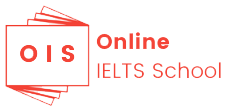IELTS Reading Test
Achieve success with our comprehensive IELTS reading test preparation guide. Our online program will teach you critical reading skills, an extensive vocabulary, and practical IELTS score-raising techniques.
IELTS READING TEST PREPARATION
The IELTS reading test is a highly significant exam where the candidate’s proficiency in the English language is assessed through various reading assignments. It can be of two types―if you are interested in studying abroad, you must take the IELTS Academic Reading Test. If you are interested in other purposes, such as working abroad, you must take the IELTS Reading General Test.
At OIS, our goal is to help test takers prepare for the IELTS reading test. We also provide general IELTS reading academic tips and strategies to help them perform better. Passing the IELTS test is a certification that you can speak proficiently in areas where the English language is accepted as the predominant method of communication. Universities in the UK, US, New Zealand, Canada, and Australia accept IELTS scores to assess the candidate’s ability in the English language. OIS is hands-on to help you achieve your goals and be able to work or study abroad at universities.
At OIS, our goal is to help test takers prepare for the IELTS reading test. We also provide general IELTS reading academic tips and strategies to help them perform better. Passing the IELTS test is a certification that you can speak proficiently in areas where the English language is accepted as the predominant method of communication. Universities in the UK, US, New Zealand, Canada, and Australia accept IELTS scores to assess the candidate’s ability in the English language. OIS is hands-on to help you achieve your goals and be able to work or study abroad at universities.

UNDERSTANDING THE IELTS READING TEST
- The general and academic reading IELTS practice sections vary in the subject material and quantity of reading sections.
- The IELTS Reading test has two sections, i.e. Academic Reading Test and General Reading Test.
- Each section lasts for 60 minutes and comprises a total of 40 questions that you need to answer.
- Each section is difficult from the previous one and has different features of authentic reading passages.
- Each correct answer fetches one mark, and answers have no transfer time.
- The Academic module includes three long lines of an academic nature, and the IELTS General Training module consists of a mixture of long and short lines of a more general nature.
- The IELTS reading test evaluates your entire range of reading skills and abilities, including understanding the main idea of the lines, logical arguments, and context and identifying the purpose of the write-ups.
TIPS FOR IELTS READING TEST
If nervousness overpowers your thoughts regarding the IELTS reading test, don’t worry, as you are not the only one. Many people struggle through this tough time to pass the test more efficiently. To make this hard work a piece of cake for you, our experts aim to assist you in preparing for the IELTS exam and understanding the idea of the IELTS reading. Here are some helpful tips recommended by our professional staff:
Analyze yourself
While taking the IELTS reading test, you must know your strengths and weaknesses. So deeply analyze yourself after each IELTS reading test preparation training section and find out where you lack. Once you find out, it will help to work on your weaknesses before the IELTS reading test.
While taking the IELTS reading test, you must know your strengths and weaknesses. So deeply analyze yourself after each IELTS reading test preparation training section and find out where you lack. Once you find out, it will help to work on your weaknesses before the IELTS reading test.
Increase your reading habit
As said, the habit of reading is a goldmine and a life-long asset. Therefore, always choose something other than entertainment or fiction stories; they could be more helpful. Instead, prioritize reading books, magazines, and newspapers to increase your vocabulary and reading skills.
As said, the habit of reading is a goldmine and a life-long asset. Therefore, always choose something other than entertainment or fiction stories; they could be more helpful. Instead, prioritize reading books, magazines, and newspapers to increase your vocabulary and reading skills.
Increase the speed of your reading
Increasing your reading speed is one of the most essential abilities in the IELTS practice reading test. You must read the entire section soon to understand what it means. The sooner you know the whole section, the quicker you can answer the questions.
Increasing your reading speed is one of the most essential abilities in the IELTS practice reading test. You must read the entire section soon to understand what it means. The sooner you know the whole section, the quicker you can answer the questions.
Use your time to the fullest
You must know how to use time ideally. Consider dividing your time, i.e. 20 minutes for the reading section, 10 minutes to read all questions, and 5 minutes to skim and scan appropriate solutions. This way, you will have 5 minutes extra to cross-check your answers.
You must know how to use time ideally. Consider dividing your time, i.e. 20 minutes for the reading section, 10 minutes to read all questions, and 5 minutes to skim and scan appropriate solutions. This way, you will have 5 minutes extra to cross-check your answers.

Our Classes
WHAT ARE THE KEY POINTS TO KEEP IN MIND ON THE DAY OF READING IELTS?
- Read the guidelines thoroughly and make a note of the number of words you can use for your answer.
- Try to use your time effectively if you need clarification with the answer. Proceed to the next question.
- Always keep an eye on the clock.
- Try to write your answer directly on an answer sheet; no additional time will be provided.
- Take a few minutes to analyze the questions before writing your answer.
- Notice paraphrasing.
- Make sure you know that your purpose is to discover an answer, not to know the whole section.
- Use capital letters for your answer rather than the small ones.
- If you need help with a simple question, take too much time on the test. Leave it to answer in the end. Adhering to one question is only a waste of time.
- Individuals must be able to skim or speed-read around 200 words per minute. The best practice for the IELTS reading test is to read long lines from various resources.
Contact us today for IELTS, CELPIP, CAEL, TOEFL, and English courses. Our team is always ready to answer your questions.
Connect with us today and start your language learning adventure.
Connect with us today and start your language learning adventure.
